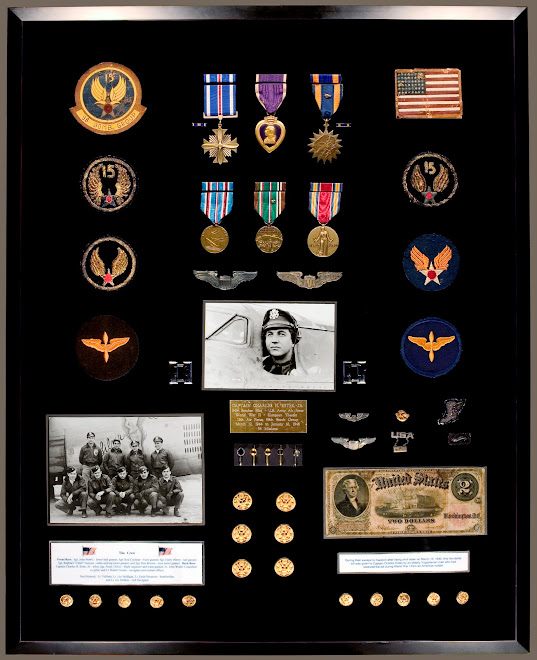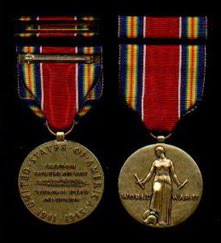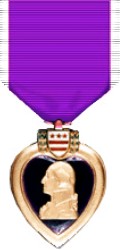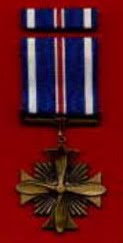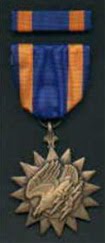(Continuation of Captain Charles Estes's War Memoirs)
"While we were just a newborn crew we were sent to
Mountain Home, Idaho, and the purpose of that was to
complete what they called combat crew training. And
they had B-24s out there, and we would fly to the
gunnery range, and the gunners would shoot at
targets on the ground. It was a lot of fun for the
pilot because I got to get down pretty low to the
ground and we all enjoyed it.
We got to know each other and where each other
was from. And it was -- I was, along with John
Congleton who came from Kentucky, we were
the only two Southerners on the crew.
(To be continued)
Tuesday, April 27, 2010
Monday, April 26, 2010
Photos of the Army Air Base in Mountain Home, Idaho 1940s
 These towers housed instrument flight simulators.
These towers housed instrument flight simulators.and radioman. The pilot would fly the aircraft while the
navigator used sky or ground references to reach an objective.
The bombardier would then take over to complete the
simulated mission. The simulator created different
flying conditions that the crew may encounter.
as the "bug chaser". The trainer simulated actual bombing
missions while the bombardier learned to operate the sight.
instructed in how to use small arms weapons.
 A typical barrack at the Mountain Home Army Air Base. Notice the
A typical barrack at the Mountain Home Army Air Base. Notice the
potbelly stove in the middle of the barracks.
at the Mountain Home Air Base. The simulator was
designed to replicate the top turret on a B-24.
 A typical barrack at the Mountain Home Army Air Base. Notice the
A typical barrack at the Mountain Home Army Air Base. Notice thepotbelly stove in the middle of the barracks.
I'm sure it was a popular spot for the crews and instructors.
* * *
* * *
I'd like to thank Lynn Beahm
with Arcadia Publishing who
provided these photos for me
to use in my blog. Many thanks!
Reprinted with permission from
Mountain Home Air Base by
Yancy D. Mailes. Available
from the publisher on line at
or by calling 888-313-2665.
http:www.arcadiapublishing.com/
mm5/merchant.mvc?screen=PROD
&Product_Code=9780738548050&
Store_Code=arcadia&search=mountain
home&offset=O&filter_cat_&Power
Search_Begin_Only=&Sort=name.asc
&range_low=&range_high=%26srch_
name%301.
Sunday, April 18, 2010
Advanced Training - Air Force Base in Lincoln, Nebraska
(Continuation of Captain Estes's Memoirs)
"Then they sent me to Lincoln, Nebraska. And there
was a group of Air Force personnel there: there were
gunners and flight engineers, there was everything.
I don't know how they chose them or how they chose
who was going to be on whose crew, but I wound
up with a crew there. And of course, it was the
first time I'd ever met my navigator, that was
Bob Swain; and the first time I was ever
introduced to my copilot, that was John
Congleton. And John had finished in single
engine, but they didn't need any single engine
pilots, they needed copilots for these big
B-24s, and he was assigned to me as my
copilot.
He was the finest boy I ever knew. He'd
been misplaced of course, he should have
been in single engine but they put him in --
in my copilot's crew, and we became great
buddies.
There at Lincoln his mother and his fiancee
had come up to see him before he went any
further away, and so I met his fiancee, Marian,
and I'm in touch with Marian now, oh, monthly.
We write and we talk and we keep in touch.
Of course, John in the interim, had a heart
problem and died, and I think he was probably
the first member of my crew that died, but
that was after we had gotten home."
(To be continued.)
"Then they sent me to Lincoln, Nebraska. And there
was a group of Air Force personnel there: there were
gunners and flight engineers, there was everything.
I don't know how they chose them or how they chose
who was going to be on whose crew, but I wound
up with a crew there. And of course, it was the
first time I'd ever met my navigator, that was
Bob Swain; and the first time I was ever
introduced to my copilot, that was John
Congleton. And John had finished in single
engine, but they didn't need any single engine
pilots, they needed copilots for these big
B-24s, and he was assigned to me as my
copilot.
He was the finest boy I ever knew. He'd
been misplaced of course, he should have
been in single engine but they put him in --
in my copilot's crew, and we became great
buddies.
There at Lincoln his mother and his fiancee
had come up to see him before he went any
further away, and so I met his fiancee, Marian,
and I'm in touch with Marian now, oh, monthly.
We write and we talk and we keep in touch.
Of course, John in the interim, had a heart
problem and died, and I think he was probably
the first member of my crew that died, but
that was after we had gotten home."
(To be continued.)
Friday, April 9, 2010
B-24 Training at the Smyrna Air Force Base - Nashville, TN
(Continuation of Captain Estes's War Memoirs)
"It was sometime in 1944 that I was sent -- no, I
went to Smyrna Air Force Base, and there they
had B-24s, and there they taught me to fly the
B-24 there. I remember going up to Smyrna on
the train. It just happened in the Sunday paper
that they had the picture of a B-24 instrument
panel, and I looked at that instrument panel and
I almost wanted to jump off the train and walk
back home, because that was the most complicated
looking thing that I ever feasted my eyes on; and
I wondered how in the world I would ever get to
the place that I would know where all of these
instruments were and what they were for.
Well, they taught me what they were and what
they were used for, and I learned how to fly
a B-24."
(To be continued.)
"It was sometime in 1944 that I was sent -- no, I
went to Smyrna Air Force Base, and there they
had B-24s, and there they taught me to fly the
B-24 there. I remember going up to Smyrna on
the train. It just happened in the Sunday paper
that they had the picture of a B-24 instrument
panel, and I looked at that instrument panel and
I almost wanted to jump off the train and walk
back home, because that was the most complicated
looking thing that I ever feasted my eyes on; and
I wondered how in the world I would ever get to
the place that I would know where all of these
instruments were and what they were for.
Well, they taught me what they were and what
they were used for, and I learned how to fly
a B-24."
(To be continued.)
Thursday, April 1, 2010
Papa Returns Home for a Two-Week Leave
(Continuation of Captain Charles Estes's Memoirs)
"After finishing there they sent me home for two weeks
leave and I enjoyed that being home for the first time.
It was rather ironical that I finished in the class of
1944-C in March, and it just happened that I was
shot down over in Yugoslavia in March of 1945,
just one year later, and I had flown 34 missions;
so I hadn't wasted much time during the time
I was in training and everything else."
(To be continued.)
"After finishing there they sent me home for two weeks
leave and I enjoyed that being home for the first time.
It was rather ironical that I finished in the class of
1944-C in March, and it just happened that I was
shot down over in Yugoslavia in March of 1945,
just one year later, and I had flown 34 missions;
so I hadn't wasted much time during the time
I was in training and everything else."
(To be continued.)
Home for a Two Week Leave

Picture of Papa in uniform
 Papa with Papa-T and one of
Papa with Papa-T and one ofPapa's instructors.

Three cousins. Standing left to right: Ben Estes,
Malcom Montgomery, Charles Estes
 Charles Estes, Ben Estes,
Charles Estes, Ben Estes,Betsy Bug and Nanny

Malcom Montgomery, Betsy Bug,
Charles Estes, Jean Holmes, Little
Miller Holmes, Nanny, Mamma Nee,
and Ben Estes
Subscribe to:
Comments (Atom)

































